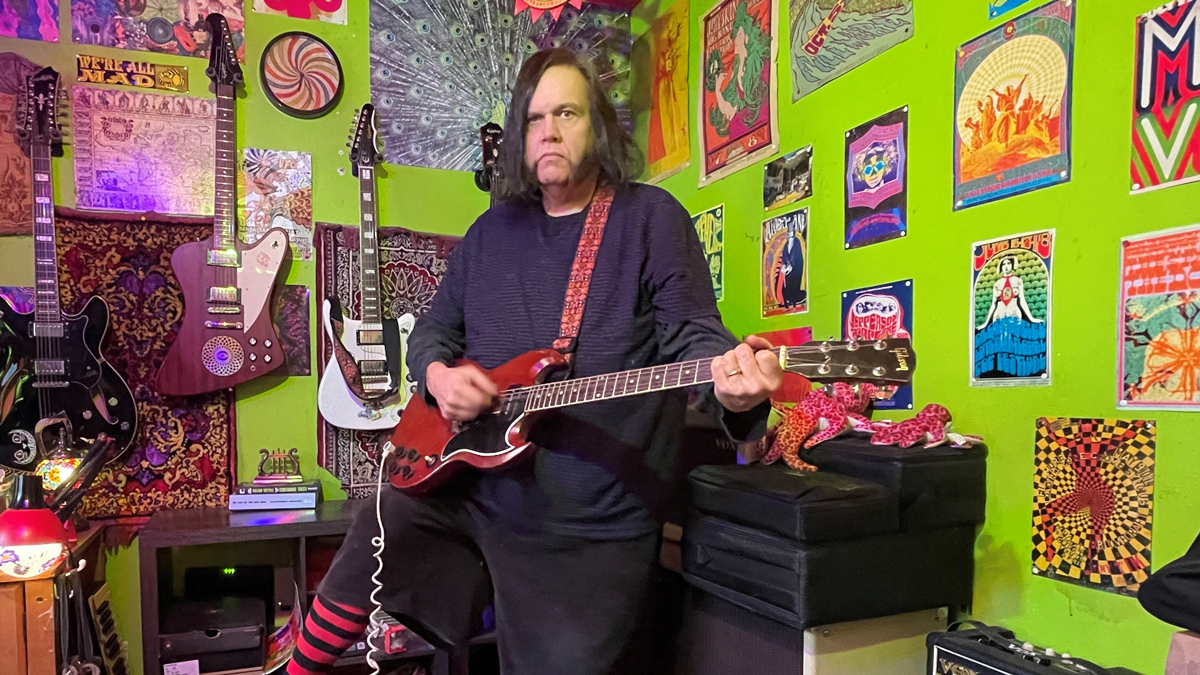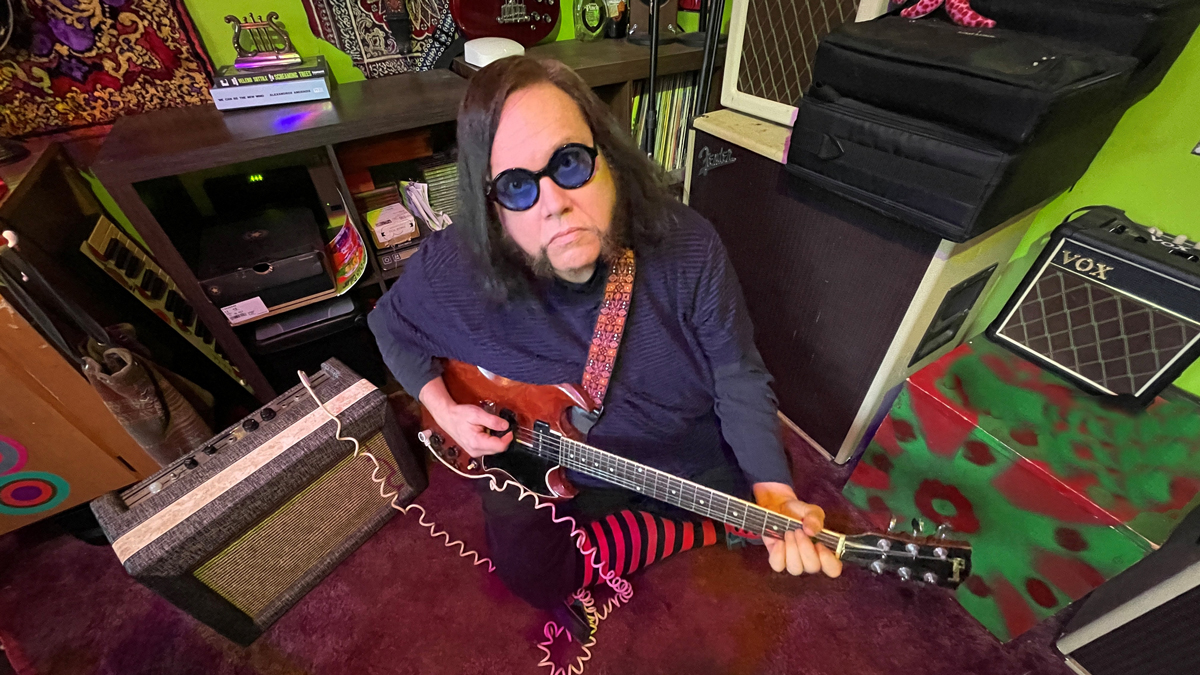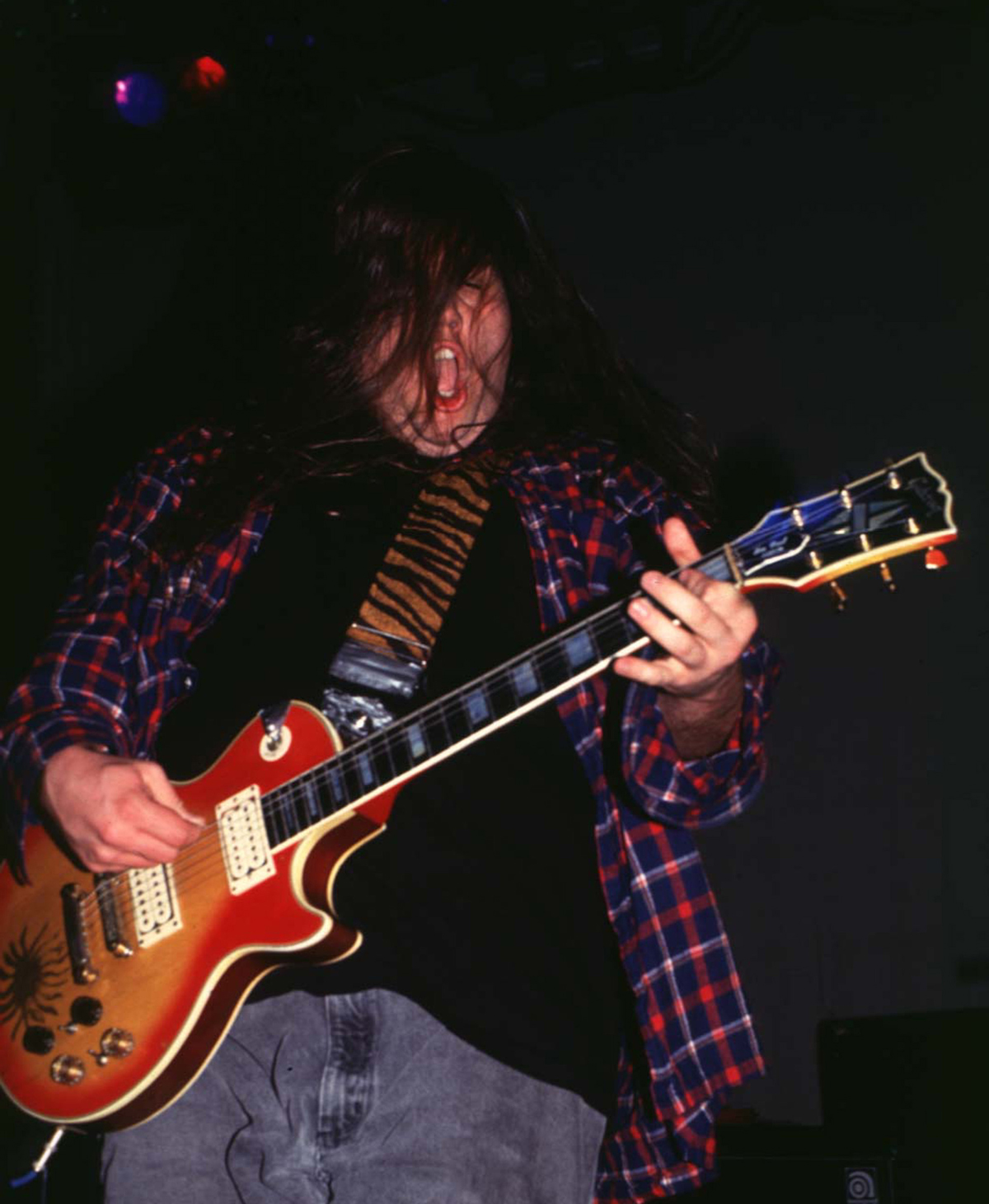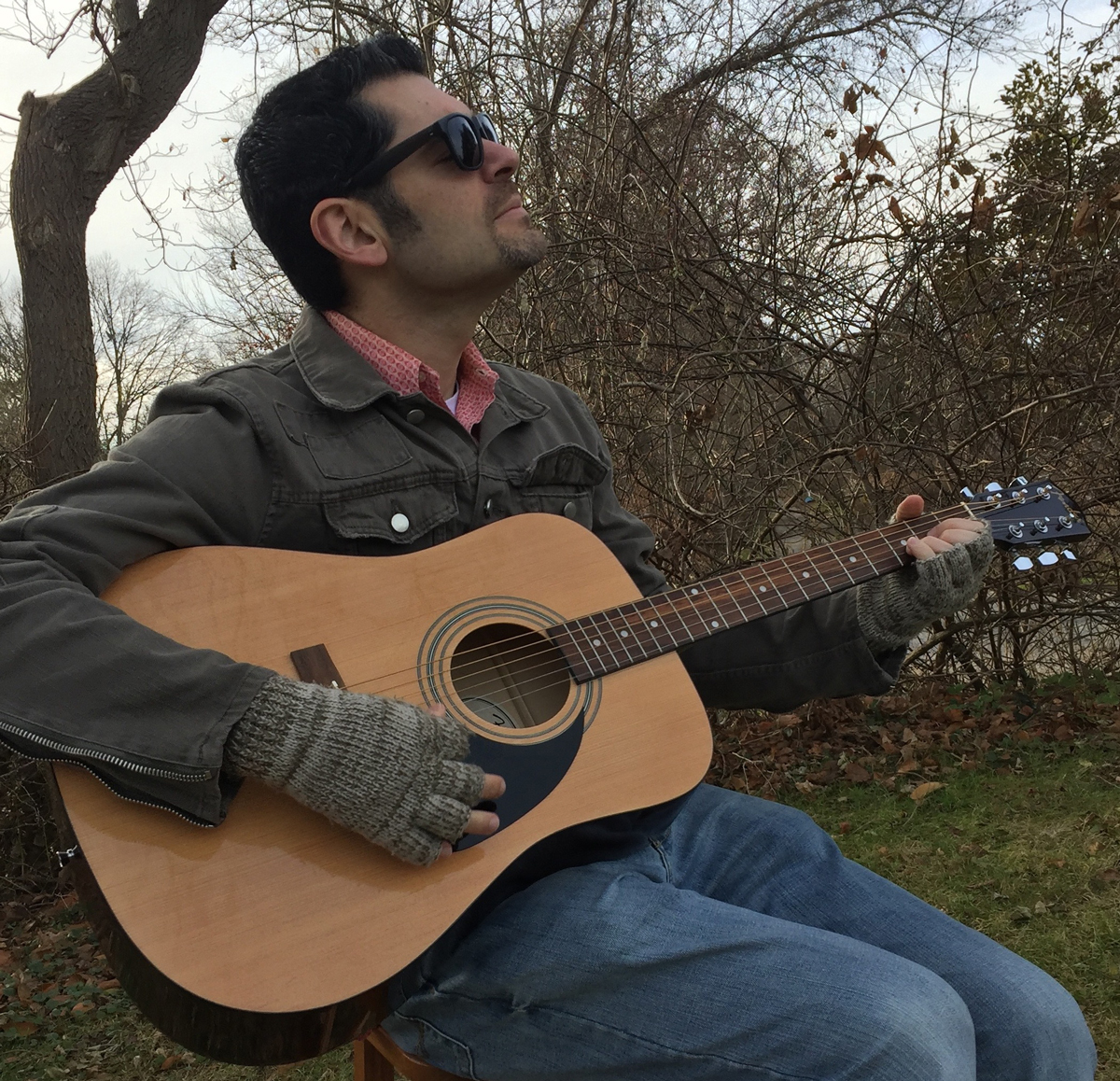Gary Lee Conner on the Screaming Trees reunion that nearly was, trading guitars with Chris Cornell and making peace with Mark Lanegan before his passing
The veteran Seattle guitarist has returned with a series of solo albums that eschew tube amps for digital modeling – and sound all the better for it

There are some veteran rock musicians who refuse to embrace modern technology when it comes to recording and creating vintage-tinged sounds. Former Screaming Trees guitarist Gary Lee Conner is not one of them.
As heard on his recent solo albums – particularly Trutheater, The Opposite of Christmas, and especially, Revelations in Fuzz – the awesome retro fuzz tones he was able to create today are quite possibly better than the sounds that helped propel Screaming Trees way back when… and there were rarely amps in sight.
Formed in 1984 in Ellensburg, Washington (about a two-hour drive south east from Seattle), the Screaming Trees also featured Gary’s brother Van on bass, and one of grunge’s great voices behind the mic, Mark Lanegan – meanwhile, two drummers kept the beat: Mark Pickerel for the first half of their career, Barrett Martin for the second.
However, unlike grunge’s Big Four – Soundgarden, Nirvana, Pearl Jam and Alice in Chains – the Trees never managed to break through on the same commercial level, despite being one of the first on the scene to merge punk, garage, and psychedelia.
After the band split shortly after the dawn of the 21st century, Lanegan continued on as a solo artist and as a member of Queens of the Stone Age for a spell, while not much was heard from Gary initially. But that all changed in 2010, when he began issuing solo albums on a regular basis, first under the alias “The Microdot Gnome,” but nowadays under his real name.
Conner spoke with Guitar World about what prompted him to launch his solo career, his radical gear shifts, and his feelings surrounding Lanegan’s passing earlier this year.
What have you been up to since the Screaming Trees’ split in 2000?
Get The Pick Newsletter
All the latest guitar news, interviews, lessons, reviews, deals and more, direct to your inbox!
“I spent the first 10 years not doing much – although I recorded a lot of songs. That was pretty much before the internet was real good for releasing your own music. I was just kind of finding out about it. I sold a few CD-R’s, but finally about 2008, I got a royalty check – enough to buy guitars and computer gear.
“And I got Cakewalk – that’s what I still use – and it’s free, too. And I started realizing I could make something that sounded pretty close to a studio album – or good enough for me – and put it on the internet. I recorded [2010’s 4D Sugarcubes] which I originally released under the name the Microdot Gnome, and then eventually decided to use my name for my solo stuff.
“So I did that first record and used Cakewalk, and started using digital guitar amp stuff, like Line 6 stuff. Then over five years, I got more familiar with computer stuff and started using [IK Multimedia] AmpliTube. And in 2016, I put out an album called Ether Trippers, and I had Jack Endino mix that one.
“That was about the time I was on Facebook quite a bit, and I realized there was a Screaming Trees interest on Facebook, and I started promoting my stuff on Facebook. And since about 2018, I’ve done that a lot.

“The only reason why I do it is because I love doing my own music. I do everything myself – I don’t have anyone play on anything; it’s all me. The music I do is not always completely retro, but that’s my main love over the years – psychedelic ‘60s. And there was a lot of good psychedelic music in the ‘80s, too.
“And Bandcamp has been great, too – you can sell physical merchandise or your own digital stuff. I have everything streaming – you can go on Bandcamp and just stream my stuff from there.
I’ve tried recording my amps… and it doesn’t sound as good as what I do on the AmpliTube amp
“But like I was saying about the retro thing, I pretty much use everything digital – except the voice and the actual guitar. But I use AmpliTube for my guitar amps. It’s weird, because nowadays I’ve tried recording my amps, and I just can’t get them to sound very good. I even tried running cords 50 feet into another room and isolating them, and it doesn’t sound as good as what I do on the AmpliTube amp.”
Your 2021 solo effort, Revelations in Fuzz, has some great, retro guitar tones on it. That was all plugins?
“On that one, the one thing I always have trouble with is trying to use the wah through the MIDI. It’s not easy. For one thing, it has to record all these ‘nodes,’ and when you go back to punch in, you have to erase all those. It’s just confusing.
“But on that, I had a Fuzz Factory [pedal, by Z.Vex] – it sounds a lot like the old [Univox] Superfuzz-type thing. And I went straight into the interface with that, without an amp – especially the solos on Revelations in Fuzz. This last one, I just used AmpliTube, because I kind of figured out how to use the wah pedal. I got an expression keyboard pedal, and just used that.”
Let’s discuss your latest album, Trutheater.
“I was going to release it a year ago, and then I got really busy doing some family stuff – I had to spend a lot of time with my daughter. I’m in San Angelo, Texas, so I spent a lot of time with her in Denton and didn’t have my stuff. I was writing songs but I didn’t have my recording gear.
“And I put the title song out about a year ago on Bandcamp. Everybody releases a song, and then another song, and sometimes, it’s five or six songs before they put the record out. So, finally this summer I got working and bore down and got the album done.
“Usually when I record, I already have songs – I write them on acoustic guitar. A lot of times, I live with it in my head for a while before I write it all the way. Then I’ll put it down on an iPhone voice recorder, so I don’t forget it.”
What is your current guitar setup?
“Like I said, it’s mostly AmpliTube. I do have a really old Supro amp that’s nice. I got it at a Goodwill in Seattle in the ‘90s. And I’ve got a Vox amp about 10 years ago that I don’t really use that much – because I can’t turn it up in my house too much.
“Guitar-wise, I really like Epiphones. I’ve got an Epiphone Wilshire [2008 reissue], which is a lot like the Wilshire I had back in the ‘90s. I don’t have hardly any of my old guitars left.
“I have one SG that I got later during the Screaming Trees. I used it quite a bit on Lollapalooza [in 1996]. It’s a ‘67 or ‘64 – the serial number is weird with those two years, because they’re real similar and it’s hard to tell which ones they are. But it got broke a couple of years ago by my cat! I managed to glue it back together.
My main guitar for years was a ‘72 Les Paul, and it got stolen. That was the one I traded with Chris Cornell for
“I use a late 2000’s Epiphone Firebird quite a bit. And a Hagström Viking 12-string.
“After the band, I moved to New York and then I moved to Texas, and I didn’t have a way to get stuff all over the country. Van has a ton of gear from the old days, but a lot of it got stolen.
“Like, my main guitar for years was a ‘72 Les Paul, and it got stolen. That was the one I traded with Chris Cornell for. When we were doing Uncle Anesthesia [which Cornell produced, along with Terry Date and the band], we bought him a silver Gretsch Roc Jet.
“But the Les Paul was a really nice guitar – I used that for years, on albums and live. It was really heavy, but it played beautifully. It had gold hardware, too. If anyone ever sees it [you can contact Gary via his Bandcamp page], it got stolen in the mid-2000s. It had two little switches for the pickups, and I had drawn a sun on it with a gold ink pen. But it was coming off 20-something years ago. You never know… it might come back.”

Which Screaming Trees albums are you most proud of?
“My favorite from the ‘80s is Invisible Lantern, which was probably our most psychedelic record. We were still working on 8-track in Ellensburg in Velvetone [Studio]. We wanted a really loud guitar and a really loud voice, and we really fought Steve Fisk to not have the drums as loud.
“And in retrospect, I wish we could remix it, because the drums and the bass are really buried – which is what we wanted at the time. But we were limited with the 8-track. We didn’t do 16-track until Buzz Factory. I love all the old SST stuff.
“Other Worlds was our very first thing and was pretty basic – I had only been writing songs on 4-track for about a year. If you listen to Other Worlds, Mark’s voice is like a little kid, high… he didn’t even know he could sing. It wasn’t until Clairvoyance where he was like, ‘Whoa. I guess I can sing!’”
How did Mark Lanegan’s passing earlier this year affect you?
“I was surprised, really, because we always figured – especially after I heard that he’d made it through Covid – that he’d out-live all of us. We figured he was going to die 25 years ago at any second, from all the stuff he did. But he had such a great solo career and I always loved his voice so much. It was an honor to have him sing on all those old songs that I wrote.
“I had very little contact with Mark over the years. I talked to him about close to 10 years ago on the phone, because the band was thinking about getting back together and doing a tour – about the time our Last Words: The Final Recordings album came out. We ended up not doing it.
Mark said, ‘We should do something together.’ There were some old Screaming Trees songs that we’d never released that he wanted me to do for his next record
“And then his book [2020’s Sing Backwards and Weep: A Memoir] came out and it had a lot of bad stuff about me in it – a lot of it was probably true, because we didn’t get along. But what affected me about the book most – before he died – was when he said all the old stuff before we got to Epic was complete shit. He sure as hell didn’t think that back then. That’s the stuff I really love.
“But I heard he moved to Ireland, and he sent me a private message on Twitter, and a couple of different times just apologized for everything that was in the book. It was a really touching letter. He made amends with me, as far as that goes.
“And he even said, ‘We should do something together.’ There were some old Screaming Trees songs that we’d never released that he wanted me to do for his next record and have me play on it. Which would have been cool. Just the gesture was really nice.
“I sent him a message around Halloween last year. He put out his last thing with Skeleton Joe, Living Dead. I messaged him on Twitter and said, ‘Man, that’s really cool. I’m glad you’re back’ – because this was after he’d had Covid. And he was just like, ‘Thanks man. I’ll talk to you later.’ And then a few months later, we heard he died.”
- Trutheater is available now via Bandcamp.
Greg is a contributing writer at Guitar World. He has written for other outlets over the years, and has been lucky to interview some of his favorite all-time guitarists and bassists: Tony Iommi, Ace Frehley, Adrian Belew, Andy Summers, East Bay Ray, Billy Corgan, Alex Lifeson, Geddy Lee, Les Claypool, and Mike Watt, among others (and even took lessons from John Petrucci back in the summer of ’91!). He is the author of such books as Grunge Is Dead: The Oral History of Seattle Rock Music, Shredders: The Oral History of Speed Guitar (And More) and Touched by Magic: The Tommy Bolin Story.
“His songs are timeless, you can’t tell if they were written in the 1400s or now”: Michael Hurley, guitarist and singer/songwriter known as the ‘Godfather of freak folk,’ dies at 83
“The future is pretty bright”: Norman's Rare Guitars has unearthed another future blues great – and the 15-year-old guitar star has already jammed with Michael Lemmo












